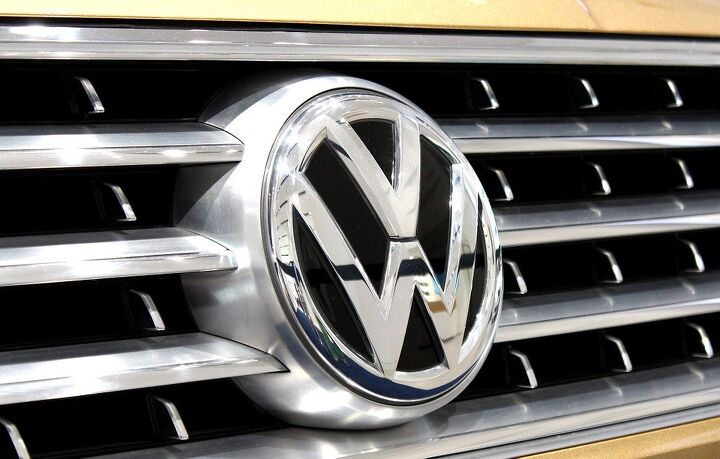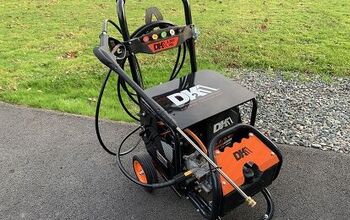VW Reduces Venerable Management Staff to Bleed the Young

Volkswagen Group is continuing to clean house and has made plans to eliminate a significant number of its management staff using the same “early retirement” tactics offered to its longstanding labor force. It’s another obvious attempt on VW’s part to remake itself into a younger, forward-thinking automaker following the diesel emissions scandal — and save itself some money in the process.
While the layoffs aren’t explicitly targeted at Germany, the majority of outgoing managers will certainly come from its European workforce. Volkswagen has declined to comment on the exact number of hangers-on potentially affected by the plan.
Last month, the automaker said it was close to finalizing plans to scale back its blue-collar workforce by roughly 9,200 workers through a similar early retirement plan that would phase out their employment by 2020. The management deal is similar in scope, affecting employees born between 1955 and 1960.
The automaker simultaneously wants to boost annual productivity in Germany by 7.5 percent in 2017 and 2018, with an additional 5 percent in the following two years — resulting in a (highly ambitious) 25 percent boost by the end of the decade. According to Automotive News, VW anticipates savings of 3 billion euros ($3.4 billion) when combined with the extensive layoffs.
“We are expecting our management levels to become younger and slimmer,” VW CEO Herbert Diess said in a statement at the start of the week.
VW has plans to retool its selection process to encourage greater initiative moving forward. The company has indicated that junior management will “play its part in the reorientation of management at the Volkswagen brand”. Volkswagen claims the new emphasis will be on practical experience with demonstrable success in daily duties. Assessment centers, which “only allow a snap assessment of management performance” will be eliminated entirely. Instead, junior managers will be required to “prove themselves during an introductory year with a specific management task before they are finally appointed to a management position.”
It also means more work. Volkswagen says it is considering combining management roles across the board while fixating upon its younger, less highly paid workforce.
“Volkswagen must complete comprehensive preparations for the challenges and the competitive environment faced by the industry. For this purpose, it will be necessary to increase productivity, with improved work procedures and high-performance, slim, flexible structures in all areas of the company and at all levels. This also applies to the management of our brand,” explained Diess. “In this context, we will achieve higher productivity with leaner structures, flatter hierarchies and an offensive entrepreneurial approach.”
[Image: Volkswagen]

A staunch consumer advocate tracking industry trends and regulation. Before joining TTAC, Matt spent a decade working for marketing and research firms based in NYC. Clients included several of the world’s largest automakers, global tire brands, and aftermarket part suppliers. Dissatisfied with the corporate world and resentful of having to wear suits everyday, he pivoted to writing about cars. Since then, that man has become an ardent supporter of the right-to-repair movement, been interviewed on the auto industry by national radio broadcasts, driven more rental cars than anyone ever should, participated in amateur rallying events, and received the requisite minimum training as sanctioned by the SCCA. Handy with a wrench, Matt grew up surrounded by Detroit auto workers and managed to get a pizza delivery job before he was legally eligible. He later found himself driving box trucks through Manhattan, guaranteeing future sympathy for actual truckers. He continues to conduct research pertaining to the automotive sector as an independent contractor and has since moved back to his native Michigan, closer to where the cars are born. A contrarian, Matt claims to prefer understeer — stating that front and all-wheel drive vehicles cater best to his driving style.
More by Matt Posky
Latest Car Reviews
Read moreLatest Product Reviews
Read moreRecent Comments
- Oberkanone Tesla license their skateboard platforms to other manufacturers. Great. Better yet, Tesla manufacture and sell the platforms and auto manufacturers manufacture the body and interiors. Fantastic.
- ToolGuy As of right now, Tesla is convinced that their old approach to FSD doesn't work, and that their new approach to FSD will work. I ain't saying I agree or disagree, just telling you where they are.
- Jalop1991 Is this the beginning of the culmination of a very long game by Tesla?Build stuff, prove that it works. Sell the razors, sure, but pay close attention to the blades (charging network) that make the razors useful. Design features no one else is bothering with, and market the hell out of them.In other words, create demand for what you have.Then back out of manufacturing completely, because that's hard and expensive. License your stuff to legacy carmakers that (a) are able to build cars well, and (b) are too lazy to create the things and customer demand you did.Sit back and cash the checks.
- FreedMike People give this company a lot of crap, but the slow rollout might actually be a smart move in the long run - they can iron out the kinks in the product while it's still not a widely known brand. Complaints on a low volume product are bad, but the same complaints hit differently if there are hundreds of thousands of them on the road. And good on them for building a plant here - that's how it should be done, and not just for the tax incentives. It'll be interesting to see how these guys do.
- Buickman more likely Dunfast.


































Comments
Join the conversation
It sounds like they are allowed to discriminate based on age, as targeting workers born between 1955 and 1960 would never fly in the USA. When you remove the age discrimination component, early buyouts are a great way to ensure that your most employable talent leaves, and the folks that are otherwise unemployable stick around, especially when it's hard to get rid of people.
One thing companies do not thing about - when I was younger and I saw older guys get the ax, I always wondered why I would want to stick around a place that gets rid of employees in their prime just to save a few bucks. Obviously they would do the same thing to me if they could. You are not young forever.